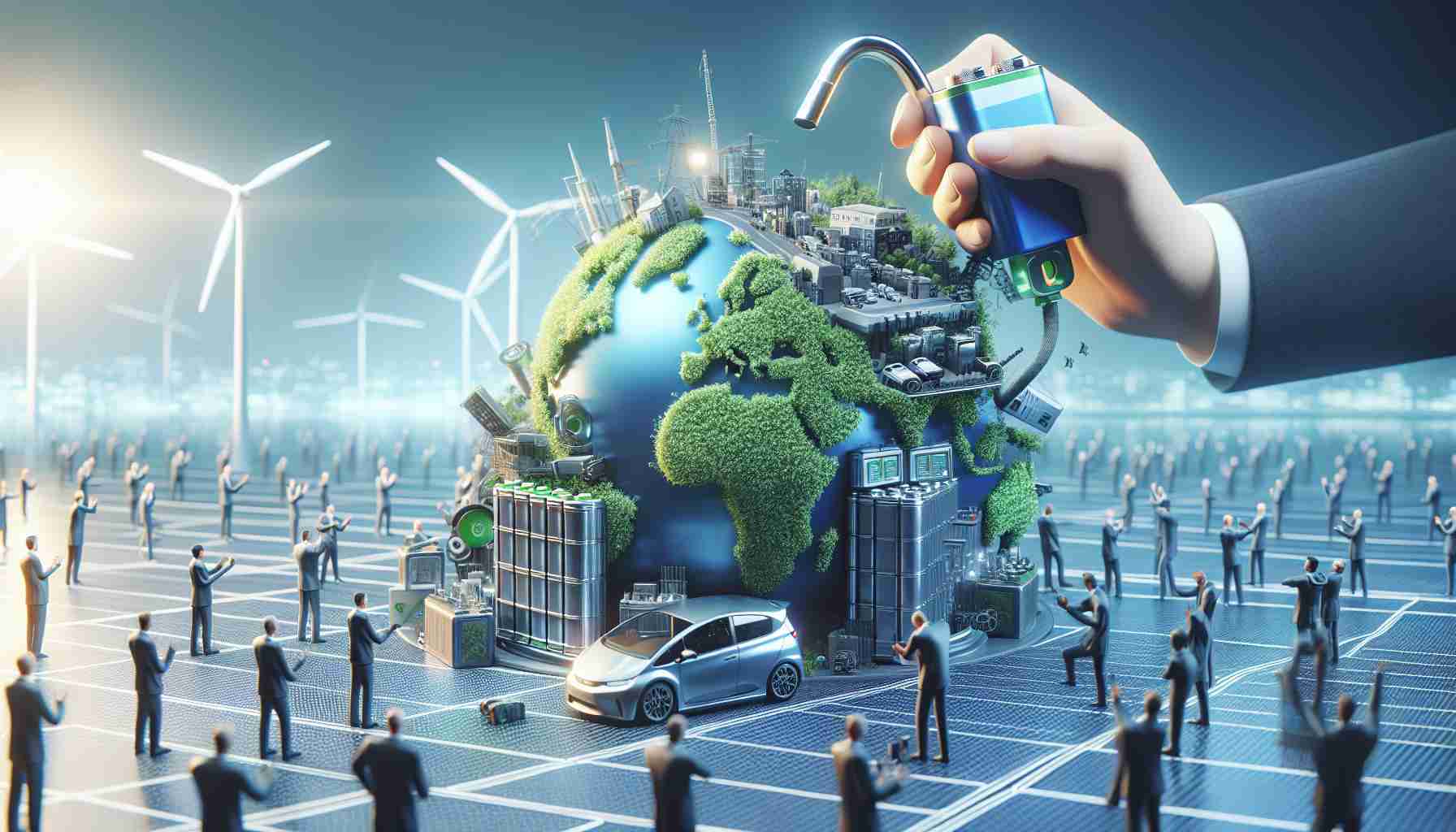- European startups Altilium and tozero are advancing electric vehicle technology through innovative battery recycling methods.
- Altilium specializes in recycled cathode materials, achieving up to 70% reduction in CO2 emissions and 20% lower production costs.
- tozero focuses on recycling graphite using a hydrometallurgy process for net-zero emissions, supported by renewable energy.
- These innovations could challenge China’s dominance in the industry and align with Europe’s upcoming regulations for recycled metal use by 2030.
- The efforts signal a new era for the EV industry, combining sustainability with economic benefits.
In Europe, a quiet revolution is reshaping the landscape of electric vehicle technology. Amidst soaring environmental expectations, British and German innovators are pioneering breakthroughs in battery recycling that promise not just sustainability, but serious competition to China’s unyielding supremacy.
From the heart of London emerges Altilium, a startup harnessing the power of recycled cathode materials. Their batteries, teeming with essential metals like lithium, cobalt, and nickel, astound with their performance. Research shows these recycled wonders rival their freshly mined counterparts while slashing CO2 emissions by a staggering 70%. Not only do they promise greener skies, but they also trim production costs by a commendable 20%. This ascent in eco-efficiency thrusts recycled materials onto automakers’ radar as viable options, signaling a new era for the EV industry.
Meanwhile, in Berlin, tozero innovates with a keen focus on graphite, a substantial contributor to battery carbon footprints. Through an ingenious hydrometallurgy process, this German enterprise achieves net-zero emissions when fueled by renewable energies. Plans for a pilot plant are on the horizon, with ambitions to churn out ample recycled graphite annually, enough to power 50,000 EVs. This vision aligns seamlessly with Europe’s pending regulations, which demand increased use of recycled metals by 2030.
These trailblazing efforts by Altilium and tozero illuminate a path where sustainable practices meet industrial demand. As Europe strides toward more rigorous ecological standards, the initiatives not only embody a formidable response to China but mark a pivotal leap towards a greener future.
The Hidden Powerhouse: How European Innovations in Battery Recycling Are Shaping the Future of EVs
How-To Steps & Life Hacks:
1. Invest in Electric Vehicles (EVs) with Recycled Batteries:
– As Altilium develops batteries from recycled cathode materials, consider choosing EVs that incorporate such technology to support sustainable initiatives. These batteries show reduced CO2 emissions and cost.
2. Understand Battery Recycling Processes:
– Study methods like hydrometallurgy used by companies like tozero to comprehend how metals like graphite can be recycled with zero emissions. This insight can inform smarter purchase decisions and support eco-friendly brands.
3. Adopt Renewable Energy Sources:
– Similar to tozero’s approach, individuals can switch home energy sources to renewables, supporting broader sustainability goals and reducing personal carbon footprints significantly.
Real-World Use Cases:
– Automotive Manufacturing:
– Companies like Altilium could partner with automakers to provide recycled batteries, reducing dependence on freshly mined materials.
– Regulatory Compliance:
– Adoption of these innovations aids European car manufacturers in meeting regulatory requirements for recycled material usage by 2030.
Market Forecasts & Industry Trends:
– Rapid EV Market Growth:
– The EV market is projected to grow significantly, with Europe targeting a substantial share. Recycling innovations are essential to meet future demand sustainably.
– Increase in Investment:
– Expect increased investment in battery recycling startups as automakers seek to enhance sustainability credentials.
Reviews & Comparisons:
– Altilium vs. tozero:
– Altilium focuses on cathode materials, achieving cost and emission reductions, while tozero emphasizes graphite recycling with a net-zero emission goal. Both companies represent complementary solutions to the same challenge.
Controversies & Limitations:
– Economic Viability:
– While the technology is promising, economic viability remains a concern for widespread adoption. Ensuring competitive pricing is essential for broader market penetration.
– Supply Chain Dependency:
– Transitioning away from traditional procurement may face resistance due to entrenched supply chain practices.
Features, Specs & Pricing:
– Recycled Battery Performance:
– Research confirms recycled batteries match or exceed the performance of new batteries but at a reduced cost and environmental impact.
– Graphite Supply:
– tozero’s graphite recycling process promises ample supply to power 50,000 EVs annually, offering competitive pricing to traditional methods.
Security & Sustainability:
– Reduced Environmental Impact:
– By recycling critical battery components, European firms aim to cut the EV industry’s overall ecological footprint substantially.
– Resource Independence:
– Enhances Europe’s resource independence by recycling rather than relying heavily on imports, especially from dominant players like China.
Insights & Predictions:
– Increased Environmental Regulations:
– Expect more stringent regulations in the coming years, pushing companies to integrate recycled components further to maintain compliance.
– Shift Towards Decentralized Manufacturing:
– Potential for new decentralized manufacturing hubs across Europe focusing on recycled battery production.
Tutorials & Compatibility:
– Compatibility with Existing Infrastructure:
– Recycled batteries can seamlessly integrate with existing EV models, making them an attractive choice for manufacturers.
Pros & Cons Overview:
Pros:
– Significant reduction in CO2 emissions.
– Competitive performance to freshly mined materials.
– Potential cost savings.
– Supports European energy independence and resource sustainability.
Cons:
– Economic feasibility concerns for immediate large-scale implementation.
– Potential initial investment costs can be high.
Actionable Recommendations:
– Automakers and investors should engage in partnerships with startups like Altilium and tozero.
– Consumers should prioritize purchasing vehicles that highlight the use of recycled materials.
– Governments need to support incentives for using greener battery technology.
For more information on electric vehicles and sustainable innovations, consider visiting: Electric Vehicles.org.














